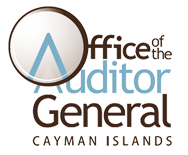A national policy is needed to improve employment prospects for Caymanians
Key Takeaways
- Despite meeting the definition of full employment there are a number of barriers to employment that need to be addressed including low educational attainment.
- Recommended that WORC prepares forecasts of long-term labour demands and the Government develop a national employment policy.
The report, Improving employment prospects for Caymanians, was issued today by the Office of the Auditor General (OAG).
The report states that the Cayman Islands consistently achieved the global definition of full employment between 2019 and 2023. The Caymanian unemployment rate also met the definition every year, except during the COVID-19 pandemic.
Sue Winspear, the Auditor General, says, “According the global definition the Cayman Islands has full employment. This is also the case for Caymanians, except during the pandemic when the unemployment rate soared.”
“This is good news for the economy but it will feel very different for Caymanians that are unemployed and wanting to work.”
The report states that there are a number of barriers to employment.
The Auditor General says, “Despite meeting the definition of full employment there are a number of barriers to employment that need to be addressed including low educational attainment, the level of the minimum wage, lack of apprenticeships and availability of child care”. Ms. Winspear adds “Most unemployed Caymanians have a high school diploma or lower and while there are plenty of available jobs that require only this level of education they tend to be low paid.” Ms. Winspear goes on, “I note that while progress has been made in developing a framework for technical and vocational education and training (TVET), careers guidance in schools does not cover this. Given that the majority of jobs in the Cayman Islands may require TVET skills, this needs to be more of a focus.” Ms. Winspear continues, “I have recommended that WORC prepares forecasts of long-term labour demands and the Government develop a national employment policy. This policy needs to take a holistic approach.”
The report states that the Government provides a range of employment programmes. Many of these are provided by Workforce Opportunities & Residency Cayman (WORC).
Ms. Winspear says, “The Government, through WORC and other entities, provides a number of employment programmes, but the effectiveness of these programmes is unclear.” Ms. Winspear continues, “The seven programmes delivered by WORC and its partners have an average completion rate of 83 per cent over the four years. Although this varies by programme, it is good news.” Ms. Winspear adds, “However, when you look deeper into the statistics it tells a different story. Across all of the programmes in 2022, less than half of applicants were accepted onto programmes and over a quarter of people started but dropped out before they finished. The low acceptance rate indicates that there are not enough places to meet demand. This is evident for the national apprenticeship programme where less than one in ten were accepted because of limited places.”
More information about the report can be obtained by contacting Sue Winspear at (345) 938-3201 or Angela Cullen, Deputy Auditor General (Performance Audit) at (345) 922-3220.
Notes to the editor
- The audit covered the role of Workforce Opportunities & Residency Cayman (WORC) and other government entities in improving employment prospects for Caymanians. These include the Ministry of Education, Portfolio of the Civil Service and the Public Works Department.
- The audit covered the period 2019 to 2022 but included information from 2023 where relevant.
- The International Labour Organization (ILO) defines full employment as an unemployment rate of between 3 and 6 per cent of the labour force.
- Exhibits 2, 13, 14 and Appendix 3 provide information on WORC’s employment programmes.
- Exhibit 8 shows the total and Caymanian unemployment rates between Fall 2019 and Fall 2023, compared to the ILO definition of full employment.
